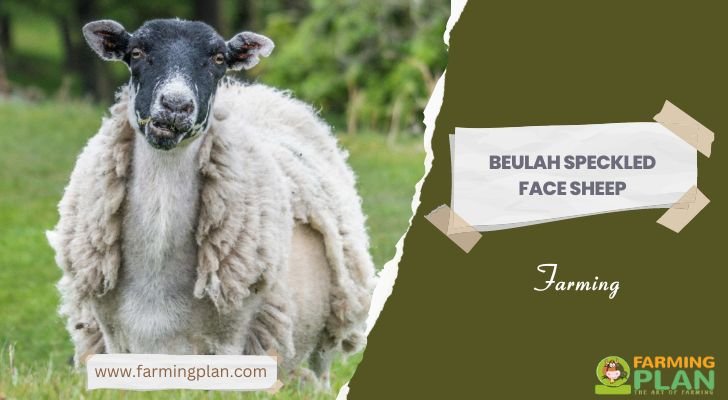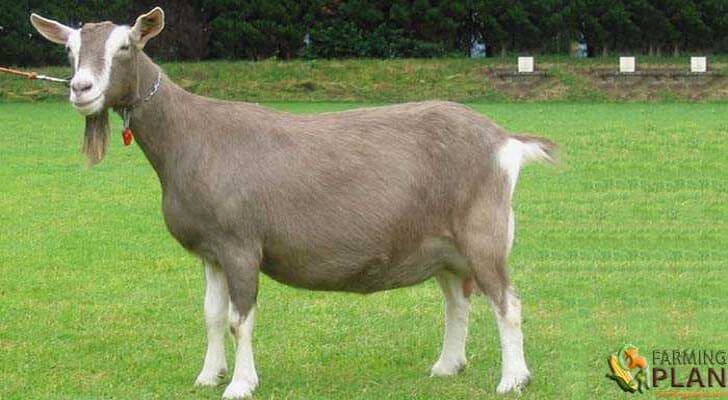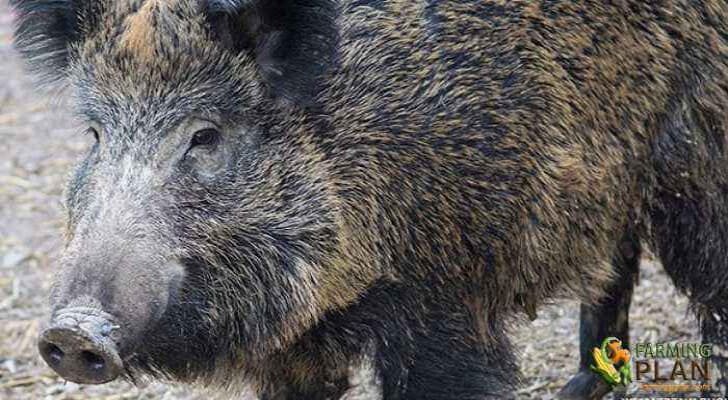The Beulah Speckled Face has a long history of inspiring generations of sheep farmers in the United Kingdom. As their popularity continues to grow, we have seen success stories from across Wales and beyond. But there’s more to successful Beulah Speckled Face farming than meets the eye – what is the secret behind these hardy little sheep? In this blog post, we’ll explore some tips and advice for ensuring that your flock will thrive on your farm. We’ll talk about everything from soil type to working with local wildlife shows in order to achieve maximum productivity. Read on as we dive into all things Beulah!

History & Origin
The Beulah Speckled Face sheep is a fascinating breed with a rich history and origin. Believed to have originated in the hills of Wales, these sheep were bred for their hardiness and adaptability to harsh climates. Their striking appearance, with a black and white speckled face, makes them easily recognizable among other sheep breeds. Despite facing extinction in the 1970s, dedicated breeders have worked to maintain and increase their numbers, leading to an increase in popularity in recent years. Their temperament and ability to produce high-quality meat and wool make them a valuable addition to any farm. The Beulah Speckled Face sheep truly represents the resilience and perseverance of a breed that has stood the test of time.
Characteristics Of Beulah speckled face sheep
Beulah Speckled Face sheep, also known as sheep, are a unique breed of sheep that have gained popularity among farmers and sheep enthusiasts alike. Their striking appearance, with their black and white speckled faces and dark wool, make them instantly recognizable. However, their characteristics go beyond their looks. They are known for their hardiness, adaptability to various climates, and their ability to produce high-quality meat and wool. They are also known for their docile demeanor and make great pets for those looking for a friendly farm animal. Whether you’re a farmer or just an animal lover, the Beulah Speckled Face sheep is a breed that is definitely worth getting to know.
Feed
Beulah speckled face sheep, also known as Jacobs sheep, are a unique breed that not only captures the eye but also has a rich history. These sheep have distinct markings on their faces, with interlocking black and white patterns that make them stand out from other breeds. They were originally raised by the biblical figure Jacob and have been a part of Middle Eastern agriculture for thousands of years. But don’t let their history fool you, they’re not just an ancient breed, they’re also highly efficient grazers who can thrive on the toughest vegetation. Feeding these sheep may seem daunting, but with the right knowledge and a balanced diet, you can keep this remarkable breed healthy and happy.
Usage
Beulah Speckled Face Sheep, also known as Beulah Speckled Face sheep in some regions, are a truly unique breed of sheep. They are instantaneously recognizable because of their striking appearance, which is defined by their distinctive black and white speckled faces. But these sheep are not just confident in their appearance – they also boast of exceptional wool and meat quality. These hardy creatures have superior adaptability and resilience, allowing them to thrive in most environments. Farmers and ranchers adore their easy-to-handle personalities and the way they produce even in challenging conditions. Overall, Beulah Speckled Face Sheep are a great addition to any farm or livestock operation – not just for their attractive looks, but also for their outstanding performance.
Special Feature
The Beulah Speckled Face sheep is a breed unlike any other. With distinct black and white markings on their faces, they are easily recognizable and have become increasingly popular among farmers. Known for their hardiness and adaptability, these sheep thrive in a variety of environments and are prized for their wool, meat and milk production. They have a calm and friendly temperament, making them great additions to any farm or homestead. Whether you’re a seasoned farmer or just starting out, the Beulah Speckled Face sheep is definitely worth considering.
Learn about the benefits
Beulah Speckled Face sheep, also known as Beulah Speckled Face sheep, are a breed that offers a range of benefits to farmers and wool enthusiasts alike. Not only are they easy to care for and hardy against harsh climates, but they also produce high-quality wool that is sought after by many in the textile industry. The breed has a docile temperament and have a tendency to form close bonds with their owners, making them great for hobby farms and homesteads as well. Additionally, the meat produced by these sheep is lean and flavorful, providing farmers with several options for profit. Whether you’re a seasoned farmer or just starting out, introducing Beulah Speckled Face sheep to your flock is a decision that you won’t regret.
Identify the right environment
Breeding is a complex process that requires the right environment and land to be successful. Whether you’re a farmer looking to breed livestock or a conservationist working to preserve rare species, there are some key considerations to keep in mind. The first is the quality of the soil and water in the chosen location. This can have a big impact on the health and growth rates of your animals or plants. You’ll also need to think about the climate and weather patterns in the area, as well as the availability of food and shelter. By taking the time to identify the right environment and land for your breeding efforts, you can increase your chances of success and ensure the long-term viability of your operation.
Understand good practices
Managing a flock of sheep can be both exhilarating and challenging. However, the key to success is keeping a close eye on your animals and implementing good practices. One of the most important things to remember is to provide your sheep with ample grazing, as this is a crucial part of their diet. Additionally, you should ensure that your sheep are vaccinated and dewormed regularly, as this helps keep them healthy and prevent the spread of disease within your flock. Another good practice is to maintain clean and dry living areas for your sheep, as this reduces the risk of illness and promotes overall wellbeing. By following these tips and keeping a close eye on your flock, you’ll be well on your way to achieving success as a sheep farmer.
Become familiar with breeding
Breeding and lambing techniques are crucial aspects of livestock farming. To become a successful farmer, it is essential to know and implement these techniques effectively. For instance, breeding techniques determine the quality and yield of the flock, while lambing techniques ensure the safety and health of the newborn lambs. Successful farmers understand these intricacies and use them to their advantage. From genetics to feeding, housing, and reproduction, everything must be done correctly to guarantee a healthy, productive flock. Learning breeding and lambing techniques can be an exciting and rewarding experience that will undoubtedly enhance your farming knowledge and skills.
FAQ
What is the most fertile sheep?
The most fertile sheep breed is the Poll Dorset. This prolific sheep has a record that still stands today for number of lambs born in one lambing season. In 1985, at Tupsley Farm near Hereford in England, a single ewe belonging to the Poll Dorset breed had 11 lambs, setting the all-time record for lamb production among all known breeds of sheep.
What is the largest hair sheep breed?
The world’s largest hair sheep breed is the African Blackhead Persian (ABP), which is native to Africa. This sheep breed has some interesting features that make it different from other breeds of hair sheep in the world. First, unlike most other breeds of wool-producing ovines, this one does not require shearing. Their wool will naturally fall out during molting season and can be collected for sale or spinning into yarns and fabrics. Secondly, ABP are very hardy animals that can survive harsh climates without losing much body condition throughout their lives; they also have a very good feed conversion rate making them an efficient producer of both meat and wool fibers. Lastly, they tend to produce larger litters than other types of domestic sheep which further increases their potential as a food source for humans in arid or semiarid regions where other forms of animal-based protein may not be readily available.
What are white faced sheep called?
White faced sheep are a breed of domestic sheep that originated in Northumberland, England. The breed is mainly raised as a meat or dairy animal and is commonly referred to by its more popular name: Scottish Mule.
Conclusion
It is clear that the Beulah Speckled Face sheep is an amazing breed of sheep with a remarkable history and characteristics. By exploring the origins and usage of this domestic breed, learning its special features, familiarizing yourself with the right environments for breeding, and understanding the key elements in its care, you can make sure to reap the benefits these animals can offer. With the proper management of your flock, you can be sure to find success in introducing this wonderful breed to your farm. And if you’re considering purchasing or leasing one of these domestic sheep breeds, do thoroughly research all facets of caring for them – from lambing to feeding. The Beulah Speckled Face sheep is truly an admirable creature and by practicing responsible husbandry practiced your flock could have a prosperous future generations to come.


